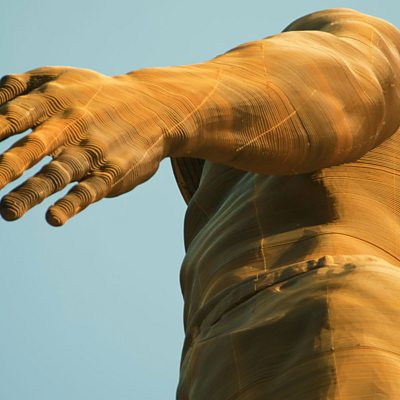Episode details

Available for over a year
Jewish communities around the world are standing on the cusp of two profound anniversaries – one that weighs particularly heavily on our hearts, and another that many may not even realize is an anniversary. In a few days, it will be two years since the appalling atrocities of 7th October, when Hamas invaded the State of Israel, brutally murdering around 1,200 women, men and children and taking more than 250 hostages. The past two years of conflict have seen horrific suffering. For so many, the wounds run deep. Yet tonight, we mark another anniversary – one rooted not in violence, but in redemption. Yom Kippur marks the day on which Moses descended Mount Sinai for a second time. On the first ascent, he received the Ten Commandments. But, in his absence, the people lost hope and worshiped a Golden Calf. Moses returned and smashed those first tablets in despair. But then came a second chance: God granted new tablets, and the Israelites were offered renewal. Consequently, the original Day of Atonement was when Moses descended with the second pair of tablets, which were to survive for all time. In Jewish tradition, anniversaries are not exercises in nostalgia. They are invitations to look forward with purpose. Judaism is an optimistic faith. And so, the holiest day on our calendar is called Yom Kippur – Day of Atonement, because we anticipate a favourable outcome even before the day arrives. This week, events in Washington have sparked fresh hopes for peace. A new proposal looks to be the best opportunity yet for the return of the hostages, a sustainable ceasefire, the end of Hamas’ rule and for a future of hope and promise for Israel and for the people of Gaza, where there has been tragic loss of life and enormous suffering for so many innocent Palestinians. While the terrain is complex and the road uncertain, we pray that the harsh winds of despair will shift, and aspirations for peace will be achieved. As we approach these two anniversaries – one of deep pain, and one of sacred possibility – they impart a lesson of critical importance: The devastation of war never precludes the possibility of peace. Hatred does not erase the possibility of compassion, and brokenness does not silence the possibility of re-creation. Anniversaries are not only markers of what has been, but signposts toward what might yet be. However fragile or fraught the present may feel, there is always the possibility of establishing a new reality – for individuals, for communities, and, we must dare to believe, for nations.
Programme Website